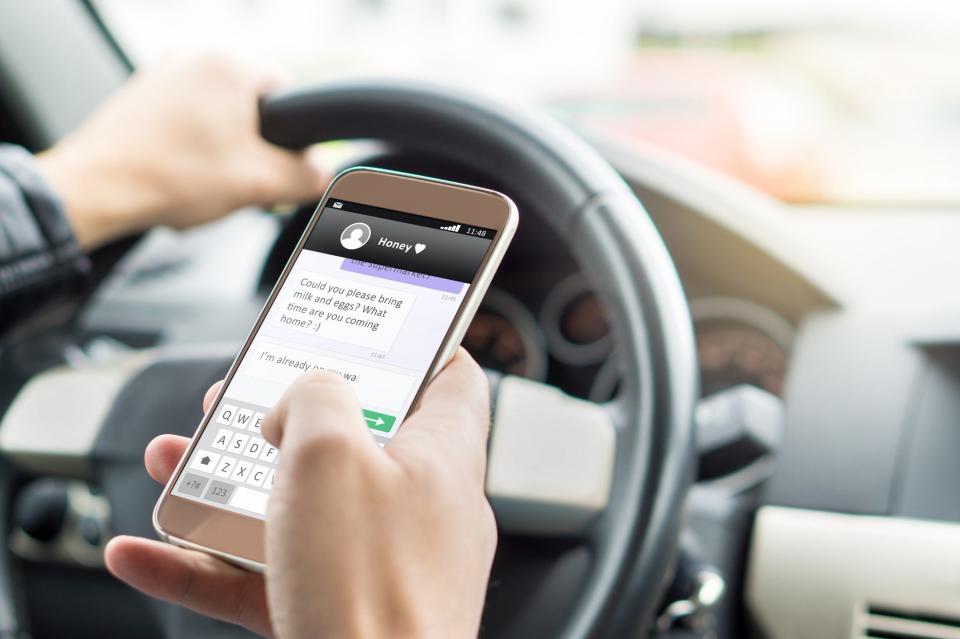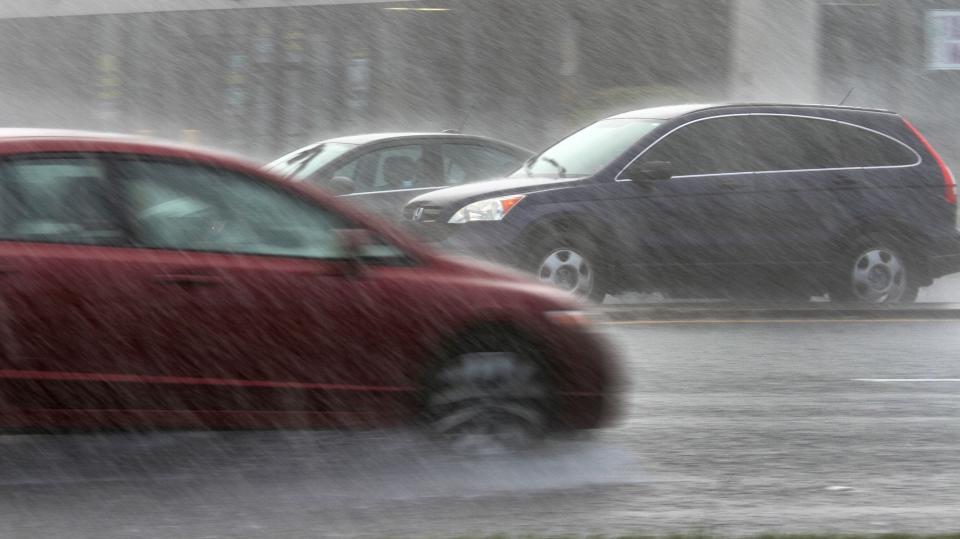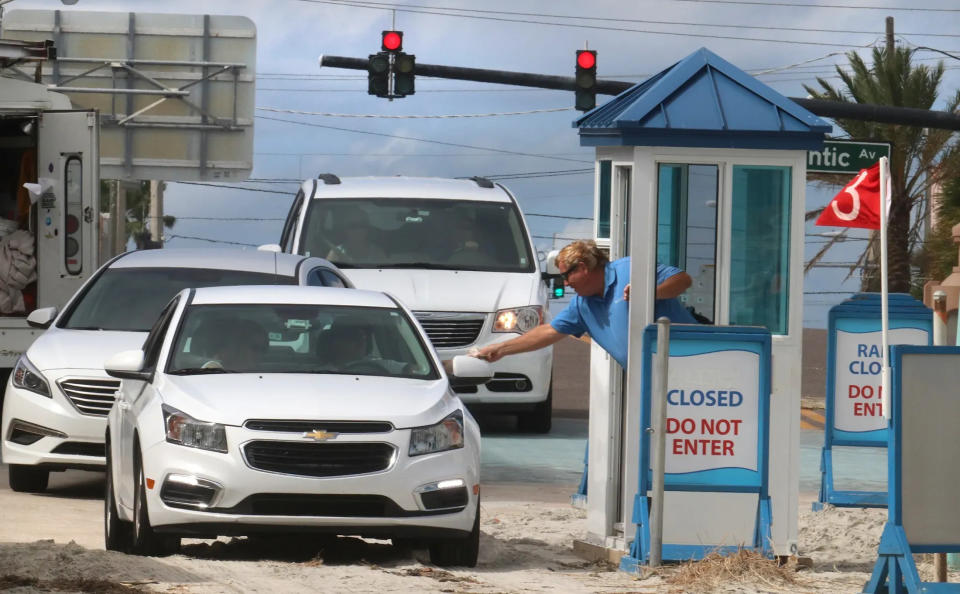Welcome to Florida, spring breakers! Here are driving laws (and penalties) you should know
Honk if you're excited for spring break, sun, sand and surf! Thousands of students are swarming across the state in search of fun, relaxation and escape from the winter climes. You may have a lot of questions about what to do and where to go, but some questions you shouldn't wait to ask in the moment.
Like, can I turn right on red here? Are U-turns legal? Do I need to move over for parked cars on the highway?
Here's a quick look at driving laws in Florida and what you need to know before you cross the border.
What are Florida's drunk driving laws?
Let's get this out of the way first.
Florida considers you to be a drunk driver and legally impaired if your blood alcohol or breath alcohol level (BAC) is 0.08 or above. Depending on your body weight that can be as few as a couple of drinks and that's at least a $500 fine on the first conviction and at least $1,000 if your BAC was 0.15 or more or if there was a minor in the vehicle with you. You may also see possible jail time of up to 6-9 months, revocation of your license for at least 180 days, and impoundment of your ride.
Other DUI penalties can include an ignition interlock device, mandatory classes and community service. It gets much worse if there is property damage or injury and much, much worse if someone is seriously injured or killed.
That's for the first offense. It goes up fast from there.
Also, the legal drinking age in Florida is 21 or older. Possessing alcohol if you're under the legal age is a second-degree misdemeanor and that's more court fees, fines and other legal issues.
Not a drinker? Driving while impaired by drugs is also illegal and subject to the same penalties as driving under the influence of alcohol.
The Florida Highway Patrol and local law enforcement will be out in force, watching for impaired drivers. Gov. Ron DeSantis is sending 140 state troopers and 24 members of the Florida Highway Patrol Quick Response Force team to spring break hot spots to help back up the local cops.
'Never Drive Impaired': Florida Highway Patrol targets spring breakers with safety, don't drive impaired campaign
Can I text or use my phone while driving in Florida?

Not only is texting while driving illegal and a primary offense in Florida with a base $30 fine plus court costs and fees, you can't pick up your phone at all while driving through school zones and active construction zones. Florida law prohibits manual typing or reading on a mobile device while the car is in motion (you can text if parked or if fully stopped at an intersection).
Hands-free operation is fine, and you're allowed to use your phone for emergency calls or for GPS operation.
Can I turn right on red in Florida?
Yes, provided that:
You come to a stop first
There are no signs prohibiting it
You wait for any pedestrians or other vehicles already in the intersection
Are U-turns legal in Florida?
Yes, as long as you obey traffic lights, give right-of-way to vehicles already in the intersection and there are not signs that say you can't.
What is Florida's Move Over law?
Florida's "Move Over" law requires you to move over a lane, when you can safely do so, for a variety of things on the side of the road:
Stopped law enforcement
Emergency, sanitation, utility service vehicles, tow trucks or wreckers
Maintenance or construction vehicles with displayed warning lights
Any disabled motor vehicles
If you can't move over or you're on a two-lane road, you should
Slow to a speed 20 mph less than the posted speed limit
Slow down to 5 mph if the posted speed limit is 20 mph or less
Violating the Move Over law will result in a fine, fees, and points on your driving record, according to the Florida Highway Safety and Motor Vehicles.
Do I have to stay out of the left lane on Florida highways?
Not this year but soon, thanks to a law passed this year. HB 317/SB 258, the Interstate Safety bill (aka the left-lane bill) makes it illegal to cruise in the left lane of highways. You may only use the far left lane:
To overtake and pass another vehicle.
When preparing to exit the road, street, or highway.
When otherwise directed by an official traffic control device.
The new law takes effect Jan. 1, 2025.
Can I turn on my hazard lights when it rains in Florida?

Before 2021, no. After the Florida Legislature changed the law that year, yes.
But you can only turn on your flashers on highways with speed limits 55 mph or over, and only when conditions such as fog and heavy rain create “extremely low visibility.”
Can I get a ticket for driving too slowly in Florida?
If you drive so slowly that you "impede or block the normal and reasonable movement of traffic," yes, according to .Florida Vehicle Code Sec. 316.183(5). However, you also can get a ticket in Florida for driving the posted speed limit if conditions make that unsafe.
The basic Florida speed limits, according to the website floridacarlaws.com, are:
20 mph: school zones
30 mph: urban district or street
55 mph: all roads and highways unless otherwise posted
60 mph: two-lane sections of highways and freeways
70 mph: freeways, interstate highways, and other roads if posted
Every municipality, county, town or specific road can have different regulations and restrictions so watch carefully for signs.
Can I drive on the beaches in Florida?

Florida is famous for beach driving, although it's become more and more limited over the years. Daytona Beach especially became celebrated worldwide for it.
But not on all beaches, and you must observe all local restrictions on times, safe driving lanes, and wildlife. Here's where you can hit the sand in the Sunshine State. You may only enter the beach at designated ramps and there may be access fees. Check your planned spring break destination for specifics.
Mark H. Bickel, Fort Myers News-Press, contributed to this article.
This article originally appeared on The Daytona Beach News-Journal: Spring break: Texting while driving in Florida, drunk driving explained

